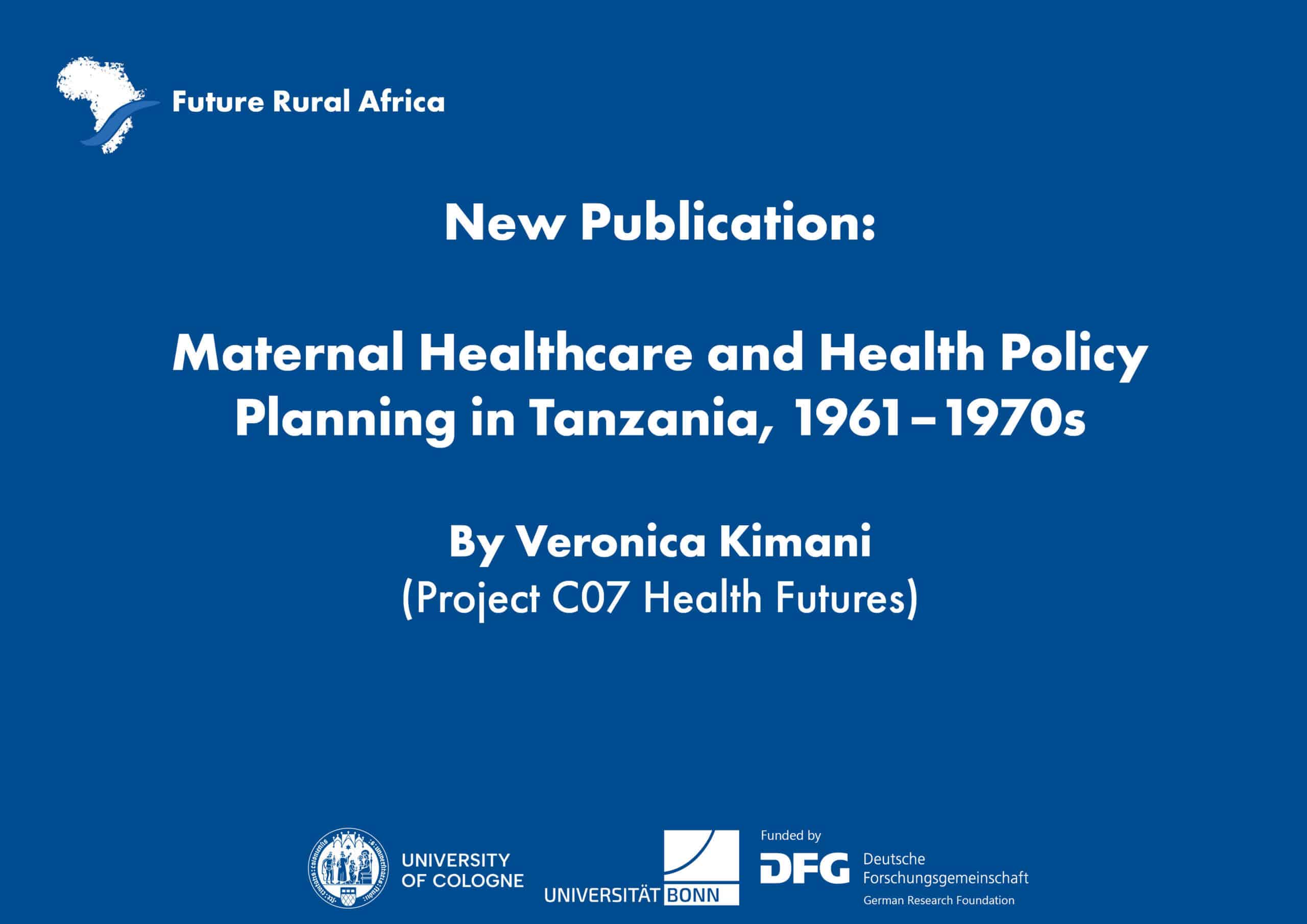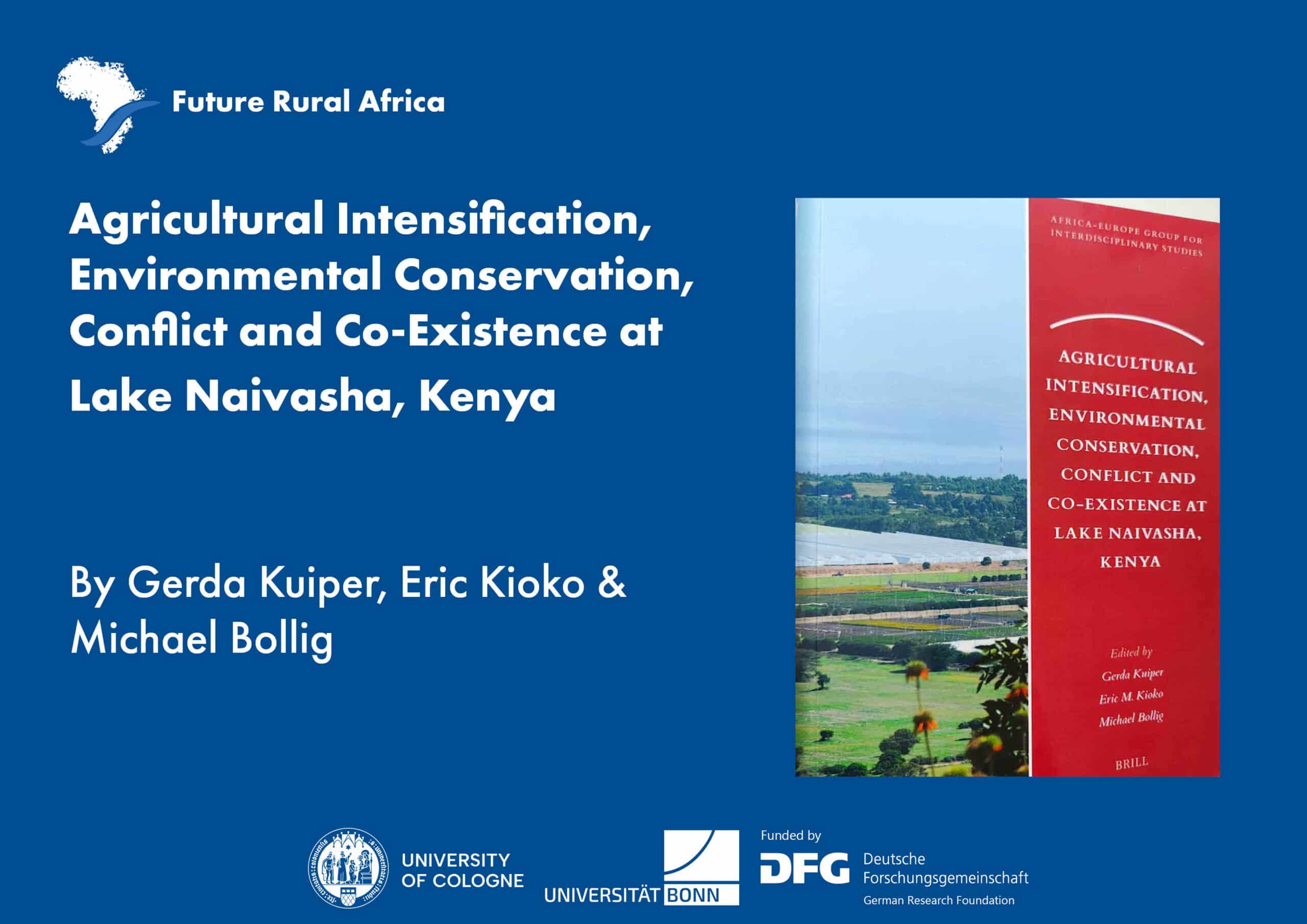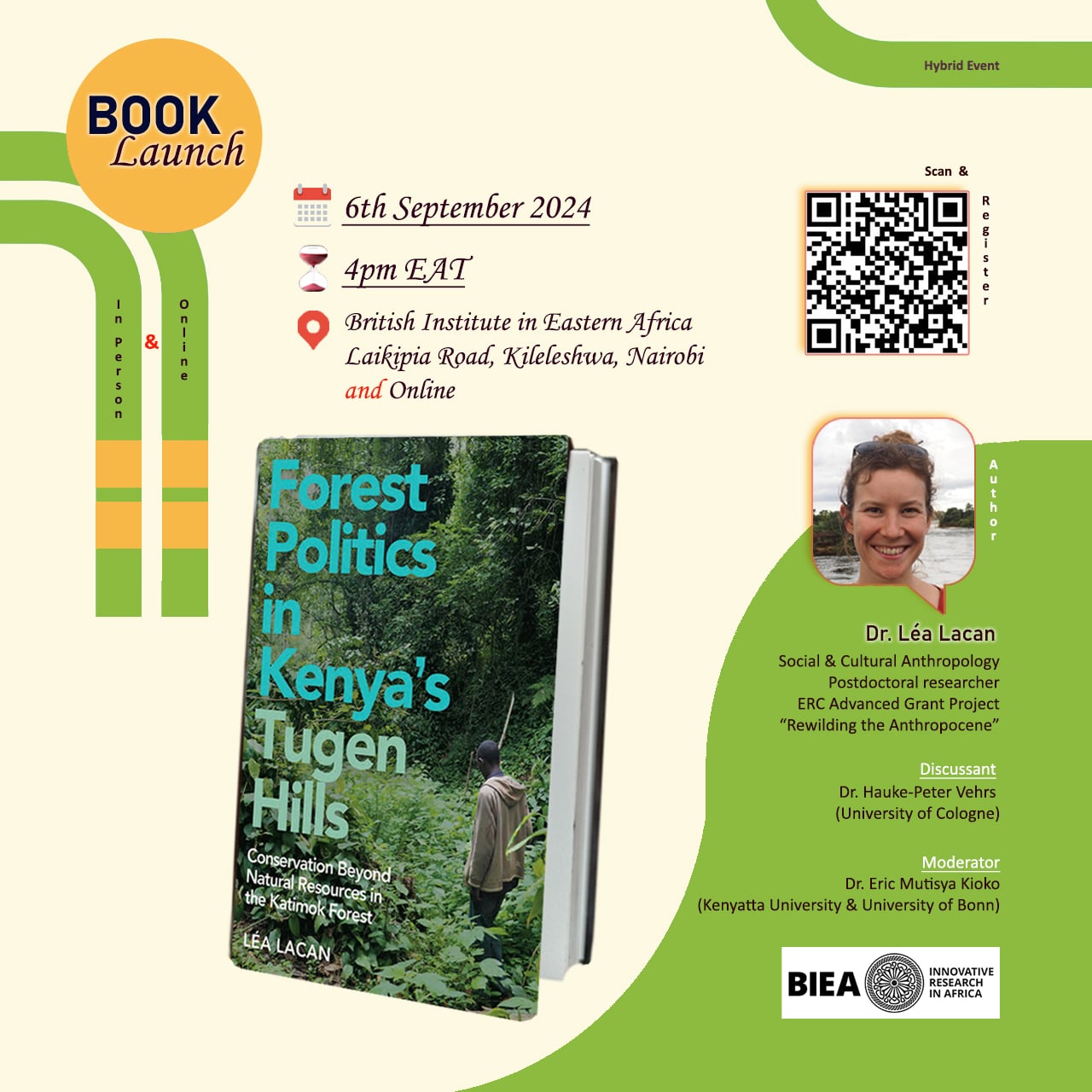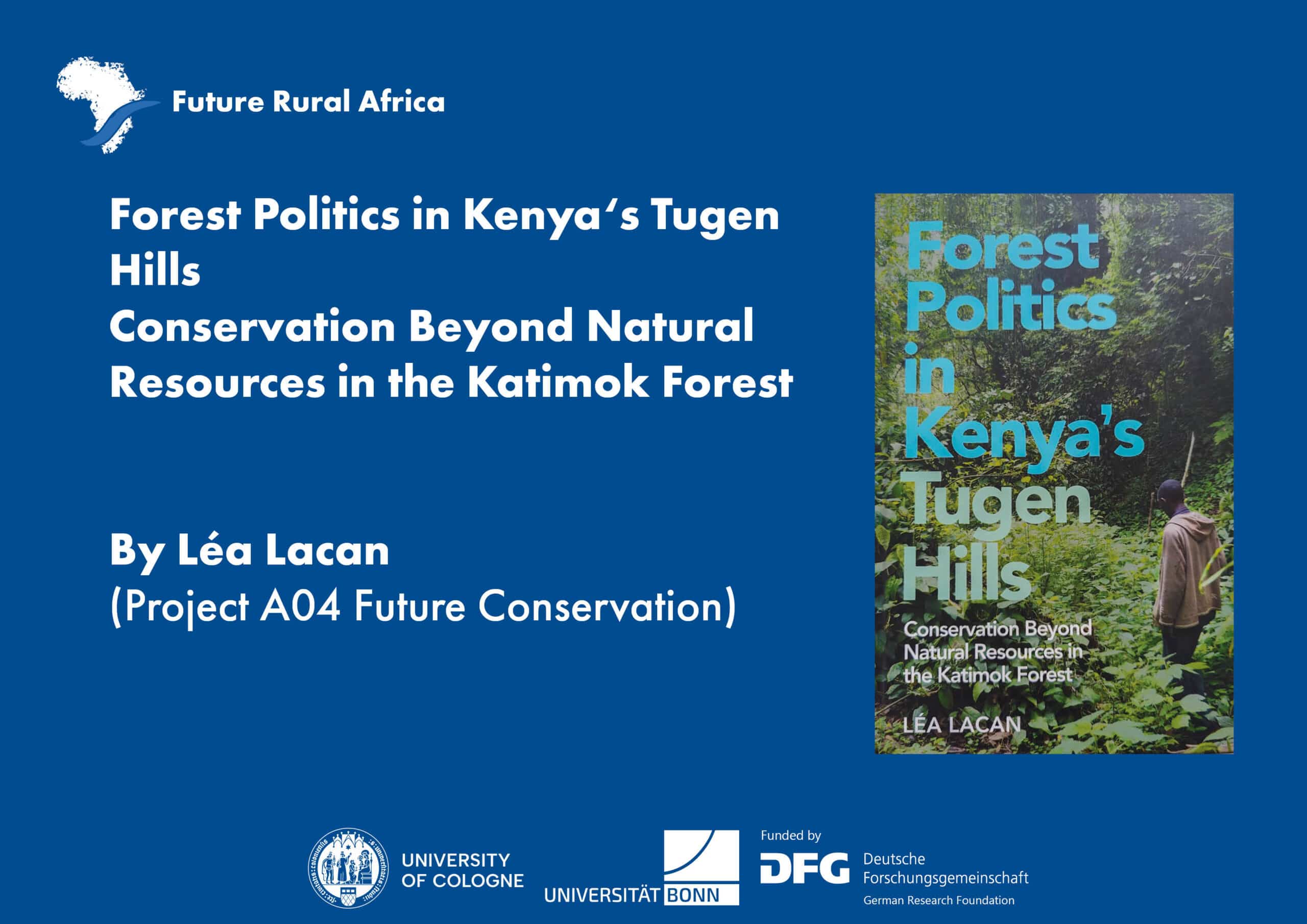Globally, there is much debate about the rapid demographic developments in Africa (population growth, urbanization, youth bulge, migration), the growing demand for food, and the scenarios of African food production (Africa’s green revolution?) also connected to scenarios of climate change. What are the debates about these linkages in Africa itself, both in academic circles, in think tanks, and in public agencies? Are demographic and climate change developments seen as a threat to food security or as opportunities? What opinions exist about the ‘order of priorities’: agriculture first, or mining? Is Africa seen as ‘different’ from (historical) trends in other parts of the world?
The above questions were deliberated in the AfricaKnows 2020 conference Panel E 30 which took place on the 2nd of February 2021. The convenors of the panel included; Prof. Dr. Detlef Mueller-Mahn (Spokesperson, CRC 228: Future Rural Africa, University of Bonn, Germany), Dr. Paul Kamau (Senior Research Fellow at Institute for Development Studies, University of Nairobi), Dr. Juliet Kamau (Research Associate, Justus-Liebig-Universität Gießen, Germany) and Marieke van Winden (African Studies Centre Leiden).
The panel was structured into two sections. The first had presentations from different scholars who presented different topics from their areas of expertise. The presenters included; Erick Gankam Tambo, Pan African Cooperation and Educational Technologies, UNU-EHS; Tanja D. Hendriks, Ph.D. Candidate, Centre of African Studies-University of Edinburgh; Samuel Kiiru, Department of Social Anthropology, University of Oslo; Njuguna Ng’ethe, Ph.D. Candidate and Project Assistant at the Institute for Development Studies, University of Nairobi; and Prof. Charles O. OkidiDirector Centre for Advanced Studies in Environmental Law and Policy (CASELAP)and Research Professor, University of Nairobi.
The second session of the panel was opened up for contributions from the audience moderated by the panelists. The discussion revolved around the future trends and challenges in Africa, focussing on interdisciplinary research and North-South collaborations. It was noted that African universities play an important role in addressing and managing the grand challenges of the continent as knowledge sites and as drivers of development. New technologies and methods of teaching developed under the impact of COVID-19 can help to strengthen the capacity of African universities and to create new opportunities for leap-frogging developments. The panelists appreciated interdisciplinarity as a useful tool for understanding complex challenges, stating that ‘Interdisciplinarity should be encouraged so as not to have people work in silos.’ The other pillar of the debate, North-South relations, addressed the resources and capacity gap challenges that impede equal and mutually benefiting collaborations. The discussants also agreed on the significance of collaborations based on mutual respect. It was proposed that the capacity of research partners from the South should be strengthened to allow for better collaboration. Moreover, existing power asymmetries, exploitation, and dependencies have wedged North-South collaborations, consequently, reinforcing the inequality-driven relation structures. It was noted that research professors from the South have less time to engage in developing research proposals due to the heavy teaching burdens which force them to seek consultancy opportunities. This was one of the existent inequalities with an impact on collaboration. To address this challenge, it was suggested to speak out and share experiences to try and leverage technology for this.
In addition, the quantity of international collaborative relations to centers and universities in Africa was discussed, pointing to a perceived difference between privileged centers with high international engagement and smaller institutions at the ‘periphery’. It was agreed that some established universities benefit more from research opportunities with institutions in the North, while some panelists stated that sometimes it’s preferable to work with smaller institutions as they are less bureaucratic, more cost-efficient etc. It was agreed that funding institutions should encourage collaboration with smaller institutions.
The panel further discussed the issue of brain drain and how it has slowed down Africa’s development. Some panelists criticized that some of the best African scholars often relocate to the North and hardly contribute to research affecting developing countries, while others mentioned scholarship programs that encourage researchers to address pertinent concerns facing their respective countries. It was proposed to ‘move from brain-drain to brain circulation and try to see how best we can collaborate. […] We need to design a new brain circulation model to help the experts […] work on topics related to the South’.
When further discussing inequalities in scientific collaboration, it was agreed that it should start at the proposal writing stage where the priorities often privilege the North’s interests. To address this, researchers from the South should determine their research priorities It was noted that funding comes from the North and that Africa should invest more in research to make more research decisions. Furthermore, research funding models should not follow that of development assistance. These measures would then ensure that institutions can contribute to the research priorities which in turn would lead to a more sustainable collaboration. At the level of researchers from the South, it would be important to produce quality input which increases their bargaining power. There is also a need for structured mentorship as it gives a long-term perspective on education and career development. It was proposed that young researchers from the North need to work with young researchers from the South and acknowledge them in their research publications. In conclusion, collaborations between universities, donors, and development practitioners, need to be transparent to eliminate power asymmetries between different actors.
About the AfricaKnows2020/2021 Conference
In recent years, Africa’s universities, research institutions, and other knowledge agencies have undergone tremendous change. Growing demand for scientific forms of knowledge and higher education has pushed many of them to expand rapidly and to show a combination of daring initiatives and institutional, scientific, and educational creativity. New knowledge organizations have also been established, for example, with ties to religious groups or the private sector. ‘Decolonizing the academy’ has become a strong call within and outside the continent. Eurocentrism is increasingly questioned, while calls for ‘looking East’ and ‘looking inside Africa’ are gaining momentum. This conference, the final activity in 2020 of the Leiden African Studies Assembly, is organized with many partners from Africa and Europe and addresses the following key issues:
- There are great changes in the African knowledge landscape: is Africa preparing itself for leapfrogging to innovations?
- What will the nascent multipolar world of the 21st century mean for Africa’s role in knowledge and innovation?
- After 60 years of Independence, how do we finally decolonize the minds and change attitudes towards real co-creation?
Click here for more information about the conference.
By Antony Ogolla and Naomy Wanga






